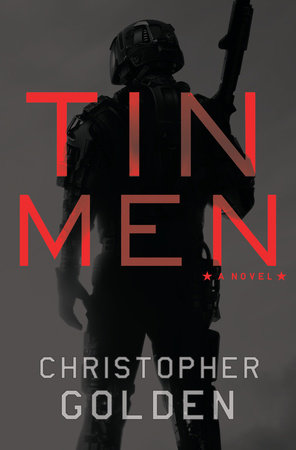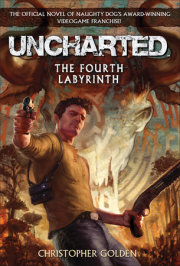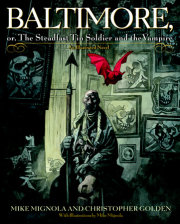1
On the morning the world fell apart, Danny Kelso woke up next to Nora for the last time. The inside of his mouth felt like papier-mâché and he still had the stink of beer in his nostrils. Wiping the crust of sleep from his eyes, he flashed back to the argument the night before, the cruelty of her smile, the angry sex they’d had to make up for it all.
“Shit,” he grunted, quietly, so as not to wake her.
Truth was, the sex didn’t make up for any of it. Not in the morning. Not now that he was sober. This pattern of fighting followed by sex made him hate himself a little more every day. No matter how often Nora picked a fight, said something that crossed a line, he never got as angry with her as he did with himself.
They’d met in a dive bar in Ginsheim, a block from the Rhine River, him on a stool and her across the counter serving drinks. She liked the uniform, though so close to the army airfield at Wiesbaden there must have been American soldiers in that place every night. Still, he’d noticed the interest in her eyes right off, and the first drink had been on the house—though that, too, might have been standard operating procedure. The rest of the world had learned to hate the U.S. military over the past seven years, but most of the shops and bars and restaurants in the towns around the base went out of their way to cater to the Americans, happy to take U.S. dollars.
Danny rose and shuffled to the bathroom, pissed and washed his hands, brushed his teeth, and then splashed water in his face. Fully awake, he went back into Nora’s bedroom and stood over her, watching her sleep, feeling nothing. No, that was a lie. The hollowness he felt actually had a name—regret. Regret that he knew he wouldn’t be coming back. Regret that he’d ever come home with her in the first place, those many months ago.
He glanced about at the mess of her room, the dirty clothes, the sprawl of makeup on the little pink vanity in the corner—the sort that belonged in the bedroom of an eight-year-old girl rather than a twenty-three-year-old woman. Empty lager bottles, half-full bottles of tequila and whiskey, an ashtray overflowing with cigarette butts. There were books, too. Nora might have a host of emotional problems, but she wasn’t stupid. If she’d been nothing but a gorgeous airhead with a knowing smile, he never would have stayed with her so long.
Now, though, it was time to go. Last night, she’d finally crossed a line she really couldn’t come back from. The words echoed in his brain.
Why don’t you go kill a few more babies?
He’d wanted to hit her then. Even raised his hand—something he had never done. Danny served alongside female soldiers and had sparred with them plenty of times in training workouts, but beyond that he’d never hit a woman and didn’t intend to start. He hadn’t hit Nora. There were things violence could solve—you couldn’t be a soldier and not believe that—but this wasn’t one of them.
Nora, on the other hand, thought that there wasn’t a trouble in the world that couldn’t be cured with booze and sex. The time had come for him to stop going along with that philosophy.
He dressed quickly, not wanting to wake her but not overly worried that he would. Nora slept like the dead. The booze kept bad dreams away, she’d always said. More than once he had tried to tell her that it kept good ones away, too. But that was an argument he knew he was never going to win.
In jeans and a faded Five Finger Death Punch T-shirt he’d stolen out of his asshole older brother’s bureau when he was sixteen, he sat on the edge of the bed and pulled on his boots. The clock was ticking and he had to head back to base. His shift started at 8 a.m.
Over the past decade the entire globe had fallen into chaos. Heat waves led to droughts which led to food shortages which led to riots. Fuel prices went through the roof, so high that only the privileged seemed to go anywhere these days. Alternative energy sources were available, but the bastards who held the reins were the carbon barons, and they kept the horses headed for the environmental cliff. Rising sea levels. Flooding cities. Calamity after calamity, all punctuated by the usual crap—civil conflicts and international incidents, people rising up to overthrow oppressive rulers, only to replace them with new ones who were just as corrupt.
In most cases, ten years ago when it was all unraveling, nobody had wanted to step in. The United Nations tsk-tsked but could never act, hamstrung by their own Security Council. China and Russia took advantage of the chaos, doing whatever they damn well pleased while the world was busy elsewhere. The only government in the world willing to step into any of those conflicts, to try to bring order to a chaotic globe, belonged to the United States of America. The U.S. Army had spent the past decade doing their damnedest to keep things under control.
And the world hated them for it.
Over the past seven years tensions had only risen. They had a whole planet to patrol, keeping the peace by force, and Sergeant Morello was gravely serious about that responsibility. Danny had to haul ass to get to the base in time. The sarge accepted no excuses.
Nora shifted under the covers, stretching into a sprawl that covered the space where Danny had been sleeping, already adjusting to his absence. Her blond hair half-veiled her face, but he could still see how pretty she was. All the roughness in her vanished while she slept. Without the nose ring and the three thin braids and the Japanese characters tattooed on her neck, she’d have looked as sweet and innocent as a little girl. When he saw her sleeping, he understood that vanity in the corner of her bedroom, a piece of who she’d once been. But you couldn’t love someone for who they were while they were sleeping. You had to love them wide-awake, and he didn’t. Hadn’t. Couldn’t.
His brother had once said he was like a shark—he couldn’t stay in one place or relationship for long, had to keep swimming just to breathe. So far, the military had been the only exception to that rule, but he had hoped Nora would turn out to be another.
Danny gently pushed the hair away from her face. He thought about kissing her goodbye but did not. It wouldn’t have been honest.
He stood and glanced at her one last time, then took out his key ring and slipped off the key to her apartment, placing it on top of her dresser, moving aside the ashtray so that she would be sure to notice it.
When he left, stepping out into a cool late August morning, Danny had no intention of coming back. And that was for the best, because he would never get the chance.
Once upon a time, Wiesbaden Army Airfield had housed only the 66th Military Intelligence Brigade and the 5th Signal Command—the folks who gathered intel and the people who made sure the troops in the field had it. But after the United States started consolidating European bases, it had become HQ for army ops on the continent and home to NATO’s Component Command. All operations from Heidelberg and Mannheim had been folded into WAAF, and now dozens of military offices called it home. The Seventh Army had their barracks at Wiesbaden, and they were only a small percentage of the personnel stationed there.
With all that going on, nobody had seemed to notice the army digging in the dirt, hollowing out a massive space underneath the western edge of the base. Of course they had noticed, but anyone authorized to get close enough to wonder what was being done there had also received strict orders never to wonder aloud.
They’d built a bunker more secure than the NORAD facility at Cheyenne Mountain, buried underneath two thousand feet of rock. Danny didn’t know much about engineering, but he assumed it had been a hell of a task to build something that safe and that deep, especially so close to the Rhine. There had to have been better spots, but somebody obviously figured it made sense to put the Hump at the same facility as Signal Command, with their constant stream of satellite intel. All the fuck-you-up-from-a-distance parts of the U.S. military in Europe living in the same house—one big happy family.
The army called the bunker Humphreys Deep Station One, after Major General A. A. Humphreys, who’d made his bones as a divisional commander of the V Corps at Antietam. What that had to do with Europe, Danny had no idea. Someone who oversaw the naming of things obviously had a soft spot for the Civil War. But soldiers always decided on the real name of the place they lived, and the soldiers stationed in that installation beneath Wiesbaden Army Airfield—the only enlisted men and women with clearance to even speak of its existence—just called it the Hump.
Danny reached the main gate at 0747 hours, later than he’d wanted but not the latest he’d ever been. He showed his ID and managed to get past the guards without any of them giving him a hard time about his car, a ten-year-old Audi e-tron. With all the trouble the United States and the European Union had gone to in order to keep oil flowing, the typical soldier wouldn’t have been caught dead in an electric car. Depending on who was at the gate, the guards sometimes challenged him on it, thinking the e-tron was some kind of mute protest of U.S. policy, when the truth was that the crappy little tin can was all he had left of his father, who had bought the thing used when he’d come to live in Germany to be close to Danny. Cancer had taken him just eight months later, a whole twenty-seven days elapsing between diagnosis and death.
He drove onto base, the car sounding like a hair dryer about to burn out, and made his way to the side lot reserved for the Hump. No marking identified it as such, of course. The one metal sign simply read RESTRICTED PARKING; if you didn’t have clearance to park there, you wouldn’t risk it.
A glance at the dash clock told him it was 0751 hours. On time. Still, he hurried, climbing out and pocketing his keys, slamming the door and hustling along the paved pathway. Several of the oldest buildings had an austere beauty, but the barracks and most of the modern parts of Wiesbaden Army Airfield were utilitarian at best. The giant lump of a building that sat atop Humphreys Deep Station One was the crowning glory of boring architecture. It made federal penitentiaries look like castles constructed of whimsy. The occupants of the offices in the aboveground section of the building were also as boring as possible, paper pushers and budget specialists, people nobody wanted to blow up.
Danny showed his ID again at the door, walked a winding corridor and then showed it twice more—passing through checkpoints requiring rising levels of clearance—until he reached the double doors at the center of the building’s sub-basement. There were no guards visible here. Defense systems this close to the Hump were automated and required both palm and retinal scans. The palm scan pricked his flesh, taking a microscopic blood sample, examined his DNA in three or four seconds.
The lock disengaged with several loud thunks and the doors swung inward. He darted inside and the heavy alloy doors moved back into place with a hydraulic hiss, locks clanking. Danny paused a second and took a breath. He wasn’t claustrophobic, but it always took him a moment to shake the trapped feeling he got when those doors closed. From this point forward there was no exit and no windows. The place might as well be a tomb, and he was headed for his coffin.
He strode down the short corridor and hit the button for the elevator. The clock on the wall showed 0757 hours. He’d be logged as on time, but barely. Sergeant Morello wouldn’t be happy.
A loud beep came from behind him and he turned as the locks began to clatter again, and the doors hissed open to reveal a woman in a wheelchair.
“Kelso, you’re late,” she said, rolling her chair into the elevator foyer just before the doors reset.
“Good morning to you, too, Corporal Wade,” he said.
“Time for breakfast in sunny Damascus,” she replied with a scowl.
Danny laughed. “Christ’s sake, Kate. Who pissed in your cornflakes?”
Arching an eyebrow, she allowed herself half a smile. “I just didn’t want to get out of bed.”
“Really?” Danny said. “Queen of the Tin Men had a little company last night?”
“Yummy company,” she said, her gaze going distant. “Oh, those tattoos.”
“I didn’t know you were into tats.”
She shrugged. “Eight hours a day in full-metal-jacket mode, I just want some human contact.”
“And you never called me,” Danny said. “Corporal, I’m hurt.”
A strange look passed over her face and she glanced up at him. “Why, PFC Kelso, you never called me, either.”
Something fluttered in his chest. He looked at her, knowing the moment was going on too long and in a blink it would be awkward. With those near-purple eyes and milk chocolate skin, the high cheekbones and full lips, Kate Wade couldn’t be described as anything but beautiful. Even in her uniform and without makeup, she looked lovely. They joked with each other all the time, flirted and played, but they were in the same unit and neither one thought it was a good idea to go further. They’d only spoken of it once, but Danny remembered it clearly. Kate had been married at the time—her ex was a complete prick—and of course Danny had Nora. As of this morning, neither of those things was true, but Kate didn’t know that.
“You feeling all right?” she asked.
Copyright © 2015 by Christopher Golden. All rights reserved. No part of this excerpt may be reproduced or reprinted without permission in writing from the publisher.










